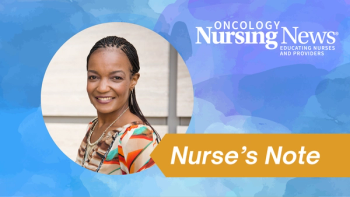
- October
- Volume 14
- Issue 5
End-of-Life Conversations: What Nurses Are Saying
We polled our audience about their comfort levels with end-of-life conversations.
As frontline providers of cancer care, oncology nurses often have to have important, though difficult, conversations with patients and their families—including end-of-life (EOL) discussions. It is crucial that nurses go into the situation prepared, while not assuming that they know how the patient feels or how they will react, explained Brianna Kirkland, RN, CHPN, of Sangre de Cristo Hospice and Palliative Care in Pueblo, Colorado.
“Never assume that you know, or you understand, the same thing as the person in front of you. Never assume that you’re smarter, and never assume that you are in a situation where you know exactly what they’re feeling, what they’re thinking,” Kirkland says.
Oncology Nursing News® recently polled our audience about EOL conversations.
What questions or suggestions do you have regarding EOL discussions?
“How do you judge a patient’s readiness, and how do you, as a nurse, feel ready and prepared?”
—Maryellen J.
“Is the patient ready to hear what you have to say? [Don’t forget] spiritual concerns, pain control, and family needs.”
—Marilynn B.
“Is the doctor on board? Have the doctors talked about stopping treatment, and am I overstepping my boundaries?”
—Amy G.
What advice do you have for other nurses regarding EOL discussions?
“Focus on palliation, not ‘giving up.’”
—Kimberly P.
"Talking about end of life doesn’t make it come any sooner. It is rarely a ‘one-and-done’ conversation."
— Anonymous
"Respect the patient’s wishes."
— Anonymous
Articles in this issue
about 5 years ago
Cancer Care During COVID-19: Nurses Share Their Perspectivesabout 5 years ago
We Honor Oncology Nurses for Their Dedicationabout 5 years ago
Handling "Zoom Fatigue" Amid Constant Videoconferencingabout 5 years ago
Living Her Dream: An Interview With Christie M. Santure, BSN, RNabout 5 years ago
Improve Medication Adherence With TechnologyNewsletter
Knowledge is power. Don’t miss the most recent breakthroughs in cancer care.































































































